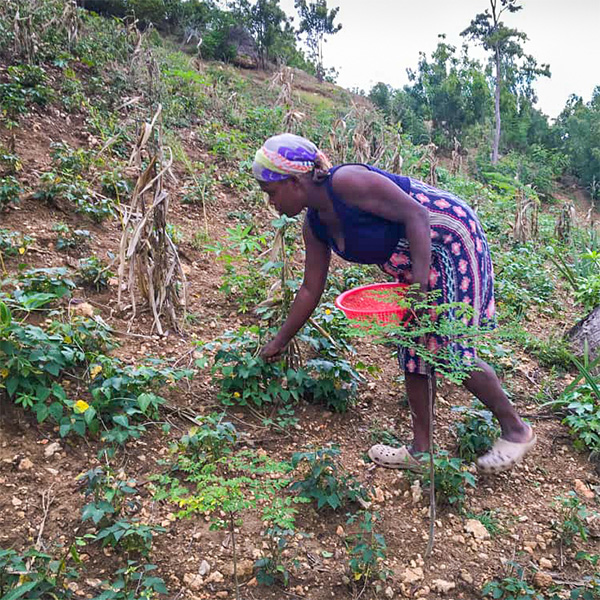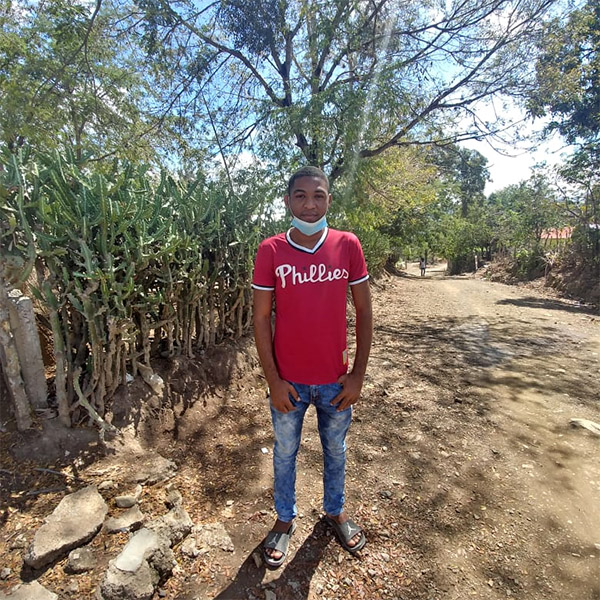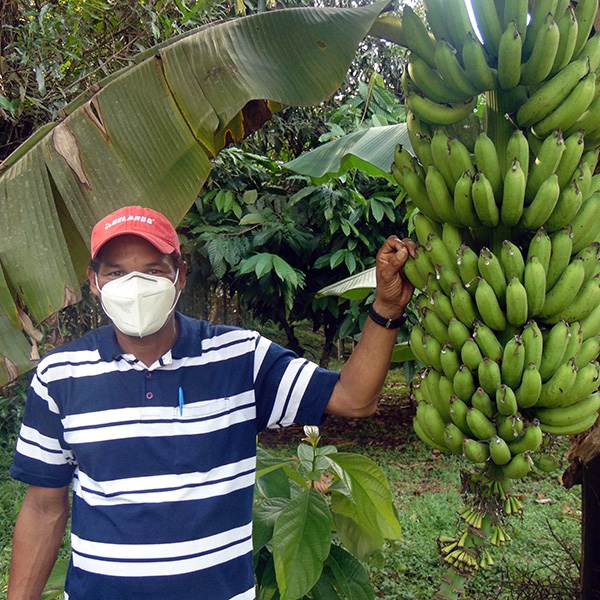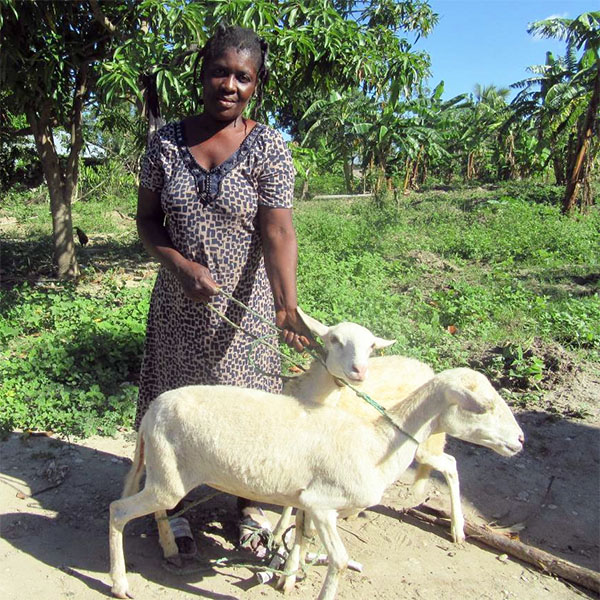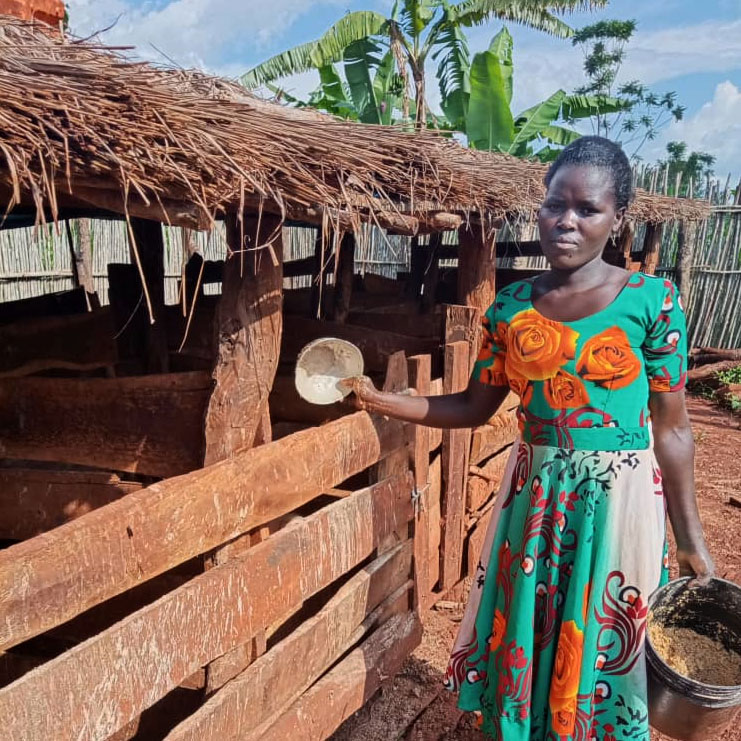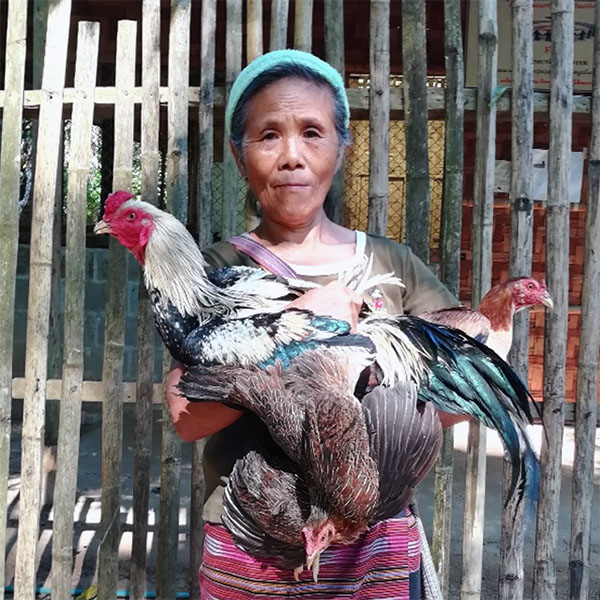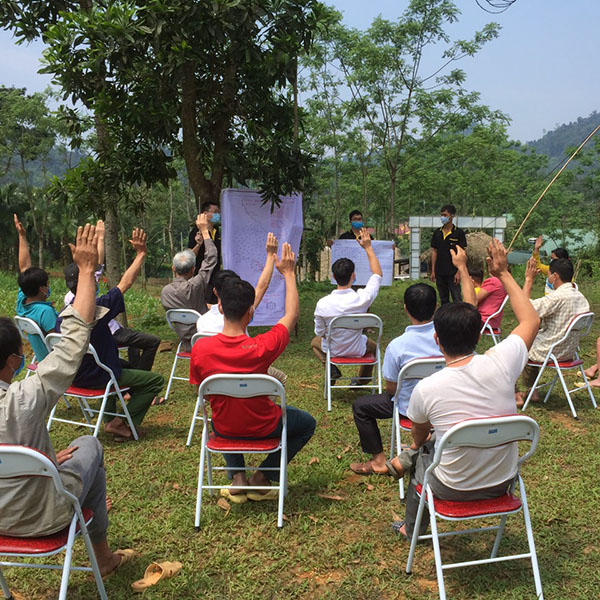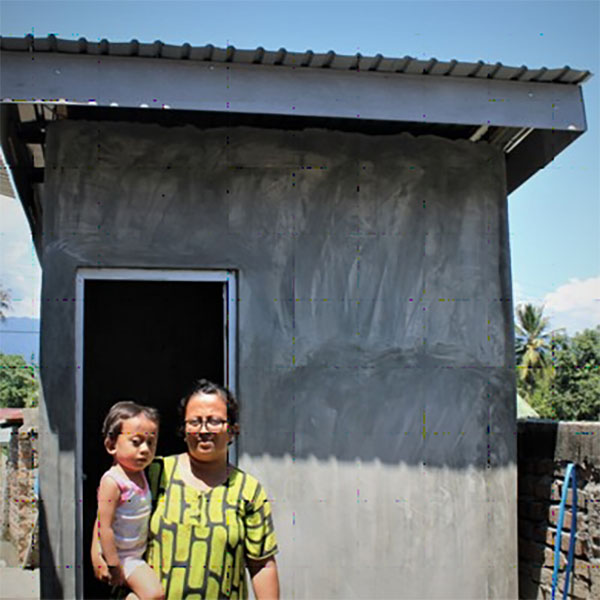Stories of Change
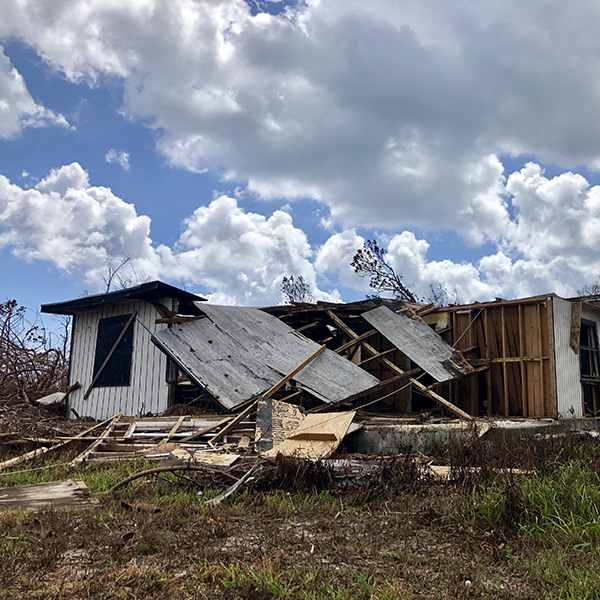
Damage from Hurricane Dorian in the Bahamas.
When the Storm Takes Your Legal Identity, Too
Hurricane Dorian slammed into The Bahamas as a Category 5 major hurricane in September 2019. It was the most powerful hurricane to hit The Bahamas since record keeping began. It was also a very slow storm, moving as slowly as one mile per hour. For nearly three days it continued its relentless onslaught, leaving widespread destruction in its wake.
“I lost my 22-year-old sister. The house and everything are gone,” said one participant of the CWS-supported recovery program. “I lost my home and all our documents,” said another.
The issue of lost documents was a critical one for many Haitian migrants and Bahamians of Haitian origin. People need government-issued documents like birth certificates and passports as part of their immigration process and when applying for citizenship. After Dorian, many people didn’t know how to get new documents, or they couldn’t afford them.
Our team learned of this challenge during our assessments in the weeks and months after the storm. So we reached out to the United Nations International Organization for Migration, known as IOM, to explore possible solutions.
We launched a pilot program with IOM in 2020 to help with redocumentation. This would help participants get the legal documents that they badly needed, and it would help both IOM and CWS learn more about the challenges that Haitian migrants face in getting legal status in The Bahamas to inform long-term programming.
The program officially launched in March 2020, just as the COVID-19 pandemic turned the world upside down. After a few delays, the program got underway. By July, information was circulating within migrant communities, churches and local media that CWS and IOM could help with redocumentation. A three-person independent committee, made up of women from within the Haitian community, reviewed applications for assistance and selected participants based on their need and vulnerabilities. By the end of the pilot program, we had helped dozens of people get a total of 366 different documents including birth certificates, marriage certificates and school diplomas. Most of the program participants were women and children.
Shana Zaporte was on the IOM team who helped people access the documents. “I was familiar with the issue of redocumentation because I used to work translating from English to Haitian Creole and also because I am part of the first generation of children born in the Bahamas to Haitian migrant parents,” Shana says. “I totally understand why they need support.”
Shana and her IOM colleagues worked one case at a time, one document at a time. An application for Bahamian citizenship requires an average of 11 supporting documents. In one case that Shana’s team worked with, the person needed 18. “One of the cases that impacted me the most was a young girl, aged 17, who lost her father and home in the island of Abaco. She had to relocate with her three siblings to Nassau. Her mother would call me every day and would say in Creole (she didn’t speak any English), ‘Thank you! Thank you!’ Three of the children were supported by the project and applied for citizenship,” Shana recalls.
For the families who participated in the program, it was one less thing to worry about as they faced the long road to recovery. It meant less stress and more hope.
The pilot program has also helped IOM to better understand the challenges that Haitian migrants in The Bahamas face in obtaining legal status. This key UN agency is now better equipped to partner with the Bahamian government to find medium- and long-term solutions that will improve the quality of life of Haitian migrants. IOM also built and expanded relationships and collaboration with faith communities, community leaders, migrant advocates and the Bahamian society at large. With a stronger social fabric, the Bahamian society is now that much more resilient in the face of future disasters.
Thanks to Presbyterian World Service and Development, an agency of the Presbyterian Church of Canada, for their support of this program.


